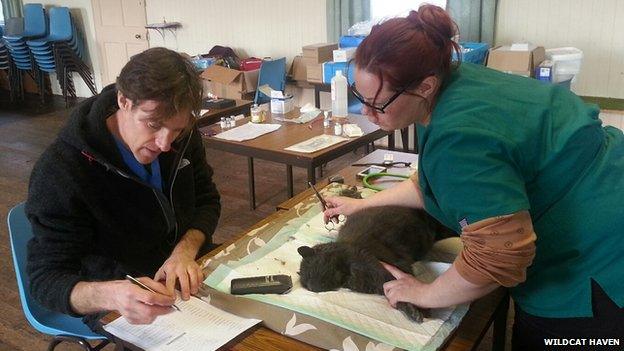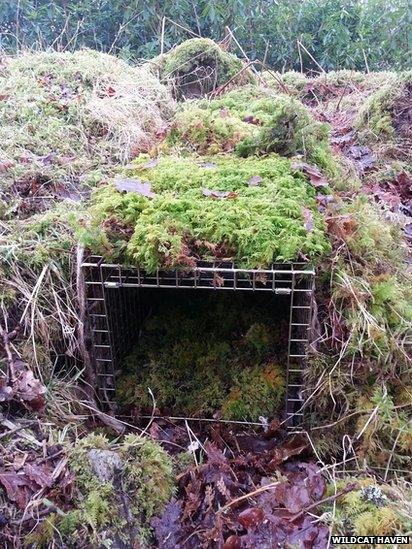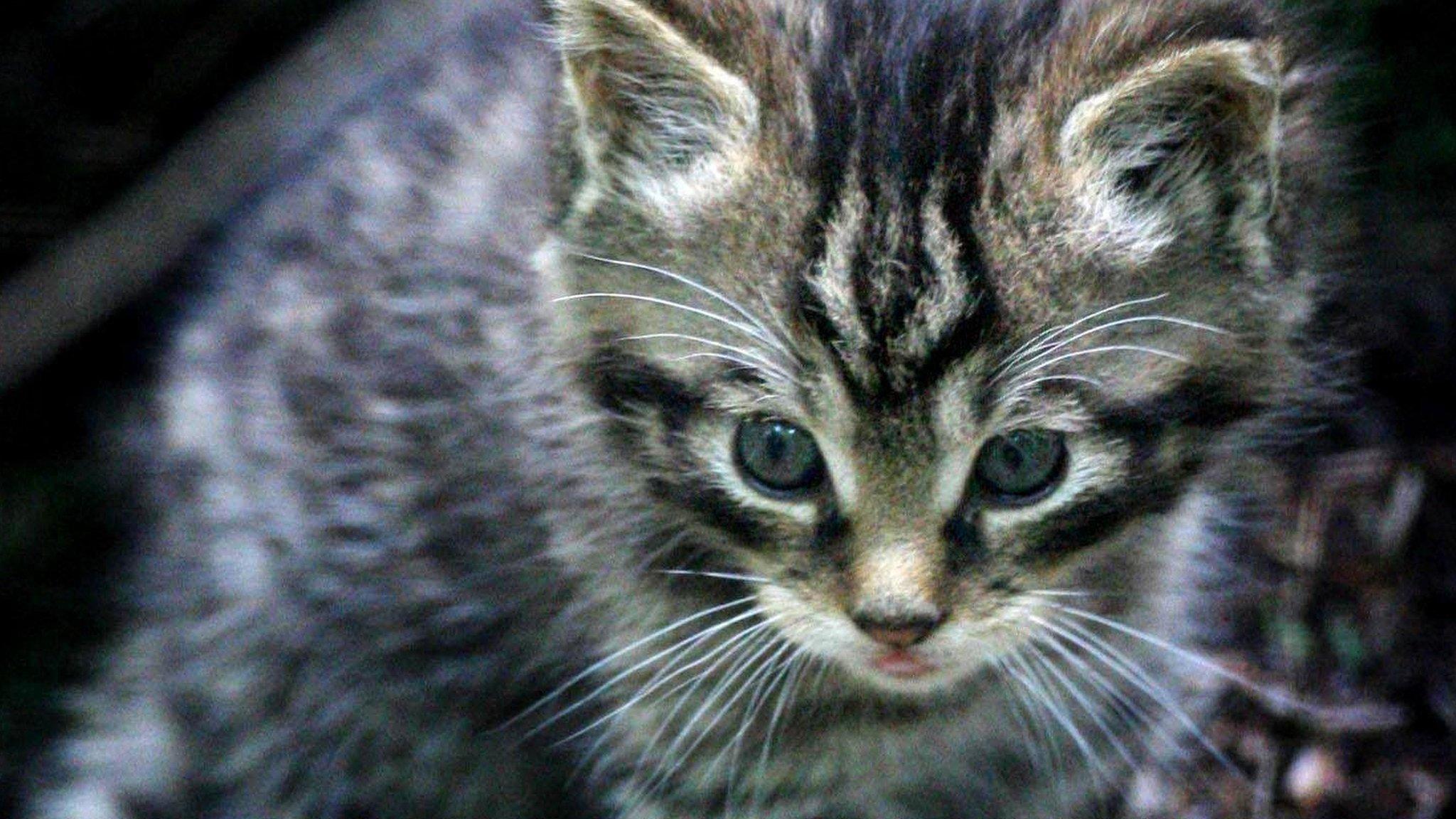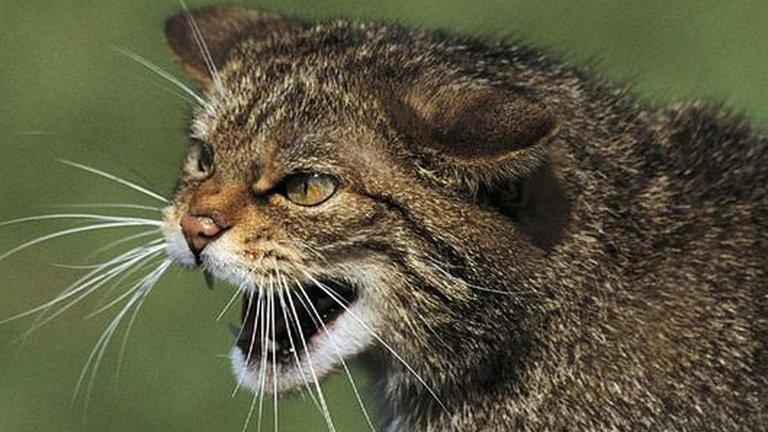Neutering clinics for pets to aid Scottish wildcats
- Published

A pet cat gets a health check while sedated during an earlier phase of the Wildcat Haven project
Clinics offering free neutering and micro-chipping of pet cats are to be held in the west Highlands as part of an effort to protect Scottish wildcats.
The procedures form part of the Wildcat Haven, a 500 square mile area that covers parts of the Ardnamurchan and Morvern peninsulas.
Clinics will be held in Mingarry Church Hall in Moidart.
Breeding with domestic and feral cats is a factor behind a severe decline in wildcats.
Dr Paul O'Donoghue, a scientist involved in the Wildcat Haven project, said the clinics on 26 and 27 February would be the first of their kind in Scotland.
Local residents usually have to make lengthy journeys to Fort William to have the procedures carried out.

A feral cat trap in Ardnamurchan
The project has also been trapping and neutering feral cats.
It was announced earlier this month that the wildcat "safe haven" was being doubled in size.
A location on the remote Ardnamurchan peninsula was designated a protected area for the endangered cat last year.
It has been extended to take in parts of Morvern to give the haven a total coverage of 500 square miles.
The project's organisers believe wildcats' best chance of surviving is in the remotest parts of Scotland.
Ardnamurchan and Morvern include some of Scotland's wildest landscapes and have few human residents.
The main communities in Ardnamurchan - Acharacle and Strontian - have populations of about 560 and 350.
The haven project is separate from one involving six priority areas for Scottish wildcat conservation identified following research commissioned by Scottish Natural Heritage (SNH).
They are the Angus Glens, Strathbogie in Aberdeenshire, Strathavon in Moray and Morvern, Strathpeffer and Dulnain in the Highlands.
Research suggested these were where wildcats had the best chance.
Nine areas were assessed as part of the multi-agency Wildcat Action project.
- Published6 February 2015

- Published11 November 2014

- Published23 July 2014

- Published15 July 2014
